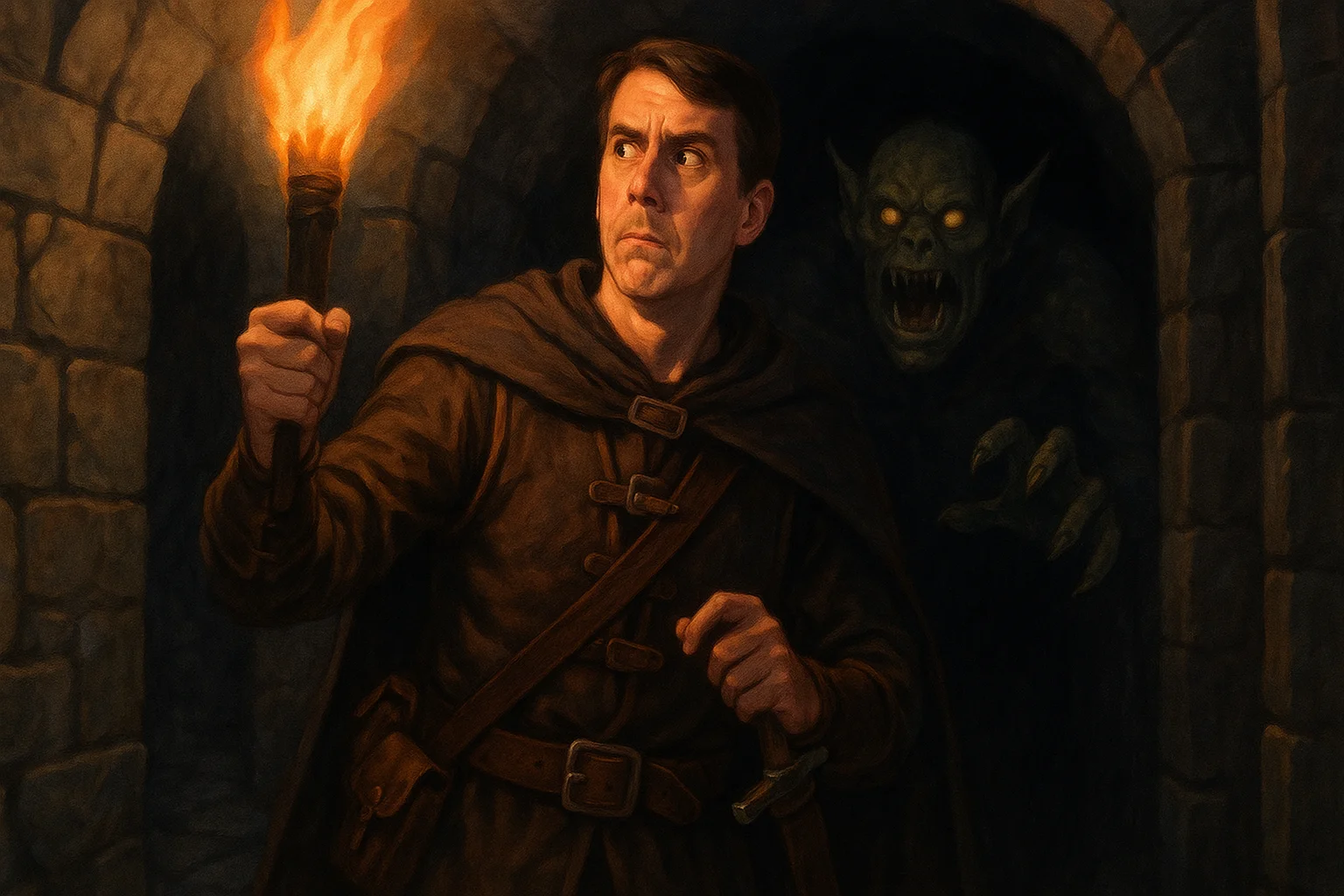
The Zero-Sum Fallacy of TTRPG Playstyles
Reject the win-lose mindset and celebrate diverse TTRPG playstyles; curiosity over gatekeeping turns debate into discovery and keeps the hobby welcoming.
Tabletop roleplaying games (TTRPGs) thrive on diversity. Not just diversity of characters, settings, and mechanics, but diversity of playstyles, preferences, settings, systems, and approaches to the game itself. Yet, despite being a hobby built on creativity and cooperation, the community often finds itself locked in a battle of competing perspectives, treating different approaches to play as if they are in direct opposition.
The idea that one playstyle must lose for another to win is what I like to call the Zero-Sum Fallacy of TTRPGs. Much like broader societal discussions around identity, culture, and fairness, we have developed a culture of dismissiveness and defensiveness. OSR (Old School Renaissance) fans dismiss modern gaming innovations as watered-down versions of the "true experience." Players of modern narrative-driven systems accuse OSR fans of being entrenched and holding the hobby back. Everyone accuses everyone else of gatekeeping, and they may all even have a point. But at its core, this is the same fundamental issue—a mistaken belief that one approach must come at the expense of another.
The False War of Playstyles#
OSR fans value challenge, player ingenuity, and a sense of danger where death is not only possible but expected. They revel in minimal hand-holding, emergent narratives, and rulings over rules. Meanwhile, modern TTRPG fans often prefer streamlined mechanics, rich character arcs, and a focus on collaborative storytelling, where the game world is shaped as much by the players’ emotions and choices as it is by dice rolls.
Here’s the thing: both are valid. But more importantly, neither invalidates the other.
Yet, online discourse often turns into a balancing act of grievances:
- "Modern games make players soft. Back in my day, we had to think, not rely on mechanics!"
- "OSR fans are just nostalgic for an era that was exclusionary and clunky!"
- "If you're not playing with X mechanics, you're not even really roleplaying!"
- "These new systems make everything a story game, where’s the challenge?"
And so on. It’s an endless back-and-forth of my preference is more valid than yours, rather than an acceptance that different games serve different needs for different people.
The Zero-Sum Mindset Is a Creativity Killer#
At the root of these arguments is a belief that RPG philosophy is a finite resource—that if one style gains traction, another loses something vital. But that's simply not true.
The TTRPG hobby is bigger than it has ever been. There are more options, more systems, more tools, and more ways to play than at any point in history. If anything, the growth of new playstyles has only served to broaden the appeal of roleplaying games, making the hobby more accessible to more people.
What does treating this as a zero-sum game accomplish?
- It shuts down discussion rather than fostering curiosity. Instead of learning about different perspectives, people dig in and become more entrenched.
- It discourages new players who see the in-fighting and assume they’re picking sides in some kind of ideological battle.
- It limits creativity by reducing roleplaying to rigid categories, rather than a spectrum of experiences that can be mixed, matched, and hybridized.
The reality is, you can appreciate different styles without devaluing others. You can play a high-lethality dungeon crawl on Friday and a narrative-driven character drama on Saturday, and both can be fun in different ways. This isn’t a war. It’s a buffet.
The Power of "Yes, And..."#
One of the fundamental rules of improv, and a cornerstone of roleplaying, is the principle of Yes, And…. It’s the idea that instead of shutting down an idea, you accept it and build upon it. If we applied the same principle to playstyle discourse, we might get conversations that sound more like:
- "I love the tactical depth of OSR dungeon crawls. What modern games do you think capture that spirit?"
- "Narrative-driven games aren’t my usual thing, but I’d love to see how they handle character development differently."
- "I’ve always been curious about running a rules-light game. Any recommendations?"
This approach turns debate into discussion, and discussion into discovery. Instead of seeing different playstyles as threats, we start seeing them as opportunities to learn, experiment, and enrich our own gaming experiences.
Gatekeeping vs. Passion#
A common rebuttal to this argument is that people are simply passionate about their preferred way to play. And that’s fair! Passion is great. Passion is what drives the best parts of this hobby—why people write homebrew rules, create new mechanics, and build vast, sprawling campaigns.
But passion becomes gatekeeping when it shifts from I love this to you’re doing it wrong. When it stops being about enthusiasm and starts being about exclusion. If your love for your style of play depends on diminishing someone else’s, maybe it’s time to reconsider what’s really at stake.
Embracing the Multiverse of TTRPGs#
The beauty of tabletop RPGs is that they are infinitely adaptable. There is no "correct" way to play. The only rule that truly matters is: Is everyone at the table having fun?
So, rather than seeing different gaming philosophies as opponents, let’s start seeing them as options. Let’s stop framing playstyle discourse as a battle and start treating it like a conversation.
Because at the end of the day, we’re all just nerds rolling dice and telling stories. And that should be enough to bring us together, rather than push us apart.
Drop a comment on X and let me know your thoughts!